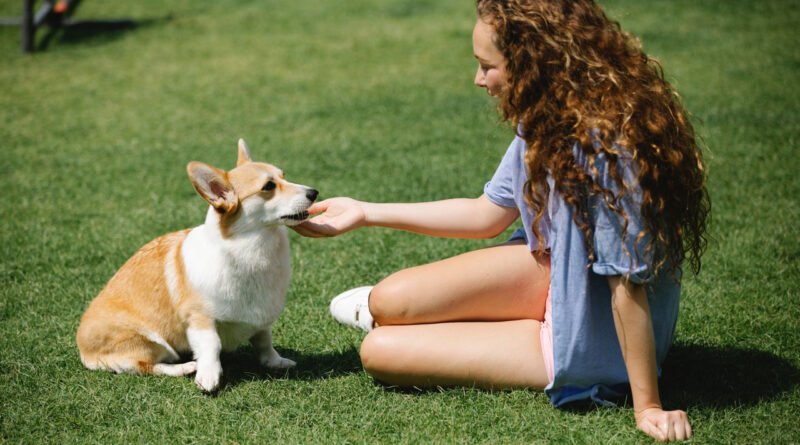RESPONSIBLE PET PARENTING
RESPONSIBLE PET PARENTING
Anamika Chaudhury
Adopting a pup can be overwhelming (if you do not know where to begin), but bringing home a pet itself is immense fun and exciting! This milestone is the first bonding moment among many between you and your furry child!
But before adopting this furry child, the first thing you should ask yourself is are you planning to be a professional breeder? If you do not intend to be a professional breeder, then it is important to take the pup’s future reproduction cycle into consideration and plan its management.
Bringing in more puppies into this world without prior planning can be a task for several reasons, mainly:-
- Availability of time to devote and take care of the new litter as well as the new mother dog constantly.
- Availability of good and airy space for hygiene and health reasons.
- Finances involved.
- Decision whether to keep the litter or how to go about sending them for adoption to the right homes at the right time. What if no one is found at the right time to take the puppies?
Do these puppies/dogs deserve to go to Animal Shelter homes which are already overcrowded or there are none in many places!
Isn’t it time to be responsible as pet parents to curb the overpopulation of unwanted dogs?
On the other hand, decisions regarding the new pup’s well-being and good health ought to be taken right at the beginning itself as depriving the animal from undergoing its natural sexual needs as well as the birthing process can lead to many many health issues. Many times it becomes fatal and often leads to death.
If you do not intend to continue your pet’s lineage, it is better to go for sterilization.
What is sterilization? Spaying is the surgical removal of the reproductive organs/system of female dogs. Neutering is the surgical removal of a male dog’s testicles. Both surgeries occur when the animal is under anesthesia. A good veterinarian will consider the age, size and health of the pup before deciding when the pup/dog can undergo this surgery.
Many people are ignorant or some hesitate to spay or neuter their pet wondering what the actual benefits are.
Sterilization has many benefits including improving the health of your pup, reducing undesirable behaviours, aggression problems and preventing unwanted animals.
Spaying your female pet will help her live a longer, healthier life. Spayed pets do not go into her heat cycle which lasts an average of 3 weeks, twice a year. Females in heat can get blood all around the house, exhibit nervousness, can be moody and attract unwanted male dog’s around your house or compound. Spaying greatly reduces the chance of mammary cancer and also eliminates the possibility of uterine infection (Pyometra) or ovarian cancer.
Your neutered male pet will be healthier. Neutered pets are happier at home. Neutered pets are better behaved. Neutering makes the pet calmer and less likely to wander looking for females or get into fights as dogs are instinctively territorial. It makes them less likely to spray and mark territory. Neutering will decrease the possibility of prostate diseases and eliminate testicular cancer.
Your pet won’t gain weight from being neutered or spayed. Weight gain is mainly related to the pet’s sedentary lifestyle and consumption of wrong and unhealthy food.
Spaying and Neutering reduces or can eliminate a number of health problems that are painful, difficult and treatment might turn out to be expensive for some people.
Spaying and Neutering can make dogs friendlier and less likely to bite. An unsterilized pet is prone to a rush of hormones in his or her body, often resulting in sexual arousal that may often lead to irksome incidents like humping things, crotch sniffing and even chasing other dogs (particularly male dogs in heat) and it could be stray dogs. This can involve greater risks of acquiring transmissible disease.
Spaying and Neutering helps prevent irresponsible breeding and fighting over the population of unwanted dogs.
Now having mentioned briefly about spaying and neutering, the next most important factor I would like to suggest to new pet parents is to look for a good veterinarian (to look for a doctor who is approachable and ready to devote time, answer your queries with patience and ease) for the pup and discuss this issue soon after the puppy is adopted. It is very very crucial to have a thorough discussion with your vet about all the pros and also about the post surgery care. A good veterinarian will make sure to firstly be aware and take into consideration your pet’s breed, age and physical condition before recommending the type of sterilization your pet will undergo as there are many different options for both spaying and neutering. It is important to ask and clearly discuss at length about the pros and cons of the different types of surgeries with the vet. This is one area that should be of major concern as there are incidences of complications in future with certain options of sterilization and that can be potentially harmful for the animal and can be life threatening or even death!
Being informed and talking to your veterinarian will ensure that your pet will have a successful sterilization procedure and will be a healthy member of your family for years to come.

Anamika Chaudhury is a garment designer who runs a tailoring unit for more than 15 years. She is a perfectionist and it can be viewed in her niche level of workmanship. Apart from her profession, she is involved in organic farming and rural upliftment
.




